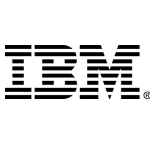Automation
Increasing resiliency as HR
08/05/2020 | Written by: Think Blog Editor
Categorized: Automation
Share this post:
While ‘being more digital’ has been top of every company’s agenda over the last decade, automation too — in some form or another — has been quietly liberating employees of repetitive task work. Over time this has shifted beyond merely creating efficiencies and cutting costs, and is now being used to enhance employee productivity, streamline operations and build customer loyalty. Some forward-thinking businesses have been going even further and implemented intelligent automation: this combines traditional automation tools with the latest AI technologies like machine learning, natural language processing and analytics.
While Human resources (HR) is a department that is well placed to reap the efficiencies delivered by AI-powered bots, it also needs to help its organization find the right balance between human and digital labour and build a stronger, more engaged hybrid workforce. There is no doubt AI can already help HR in their day-to-day business functions, including recruitment, on boarding, explanation of company policies and employee training, but it can also help companies address any potential fear and uncertainty there might be in the workforce in the changes to come, and establish the limits of trust teams can place in AI-driven recommendations.
Case story example:
Banco Popular deployed the IBM® Robotic Process Automation and decreased process completion times by 90%.
Introducing AI within companies
With robots and automation increasingly taking on tasks performed by humans, CHROs need to be very clear on the way they position AI within their workforce. Yes, AI can bring innovation and efficiency into the enterprise, but it should only be used to augment employees’ intelligence, never to replace it. In short, it should harness the skills and knowledge of the best performer, enabling the whole team to make faster, more intelligent decisions.
Skills are the new competitive currency
Technology may one of the drivers in business today, but smart organisations realise that it takes more than that to grow and sustain a company in a competitive market. It requires a significant shift in skills, attitude and culture to empower employees to grow – and thrive – with the business. To this end, HR needs to grow these capabilities from within their current employee base by developing relevant programmes and encouraging a culture of continuous learning across the organisation; and not just technical skills but softer skills too including stronger interpersonal abilities and greater creativity. AI can be a critical enabler of these new skills.
Continuous learning and rapid reskilling
Businesses need to continuously reskill from within, and give people the tools to learn and develop in line with changing needs. Permanent learning and rapid reskilling will become the default mode of organisational learning, and employees will expect to reinvent themselves on an on-going basis, picking up the skills they need to thrive in a fast-paced, innovative environment.
Most organisations have no idea what skills they have in their existing workforce, much less what they will need in the future. Here, leading organisations can leverage AI to identify skills gaps and design personalised learning programmes to fill them. AI solutions can recommend learning content tailored to each employee, curating a personal curriculum that can be consumed in the most effective way — through podcasts, face-to-face training sessions or YouTube clips. But agile teams also learn through doing, with team leaders sharing feedback daily or weekly. This continuous cycle of feedback can be captured and shared with managers outside the team to support employees’ on-going skills development.
If you’d like to see and hear more about how HR can lead with resiliency in 2020, you can sign up to a webinar on May 26th, 11 am. You will hear about strategies on how organizations can build the skills of the future whilst creating a future proof engaged workforce. Register here >
Automate work and accelerate business growth
Many companies need help to navigate the rapid changes that define today’s business environment. To improve their responsiveness and flexibility, they are looking for new ways of conducting business, rethinking their processes, and investing in digital transformation projects to increase the robustness of their operations. They rely on business automation technologies to cut out repetitive […]
Sustainability and the technologies enabling the transition
Creating a sustainable future demands significant technological innovation to decarbonize society, restore biodiversity and ecosystem health, foster thriving oceans for sustenance and economic growth, remove atmospheric carbon, transition to sustainable agriculture, and advance eco-friendly cities that align with our vision for a better future. Generative AI has achieved much in recent years and now surpasses […]
Data-driven asset management with IBM Maximo Application Suite and Cloud Pak for Data
IBM has enhanced its Enterprise Asset Management platform, IBM Maximo Application Suite (MAS), with IBM Cloud Pak for Data: a supporting platform which provides a framework for combining a variety of data from different areas of an organization. How does IBM Cloud Pak for Data help organizations gain additional asset management insights from available data? […]



